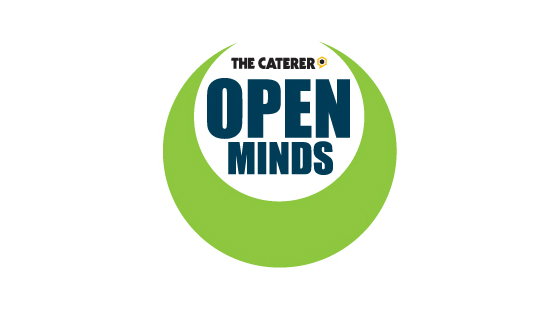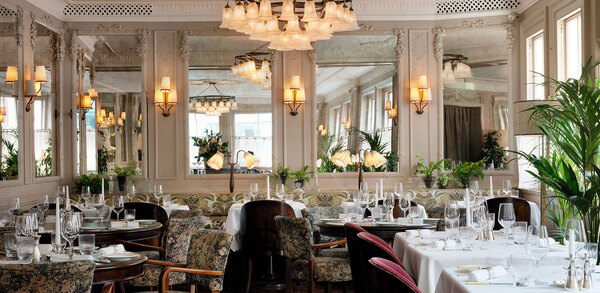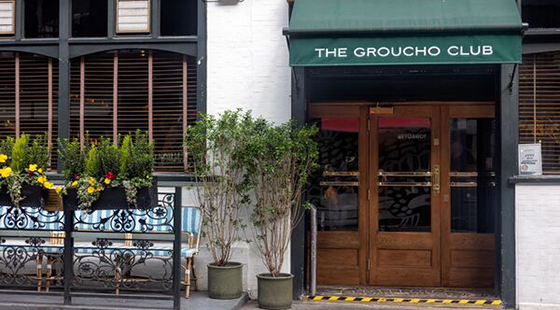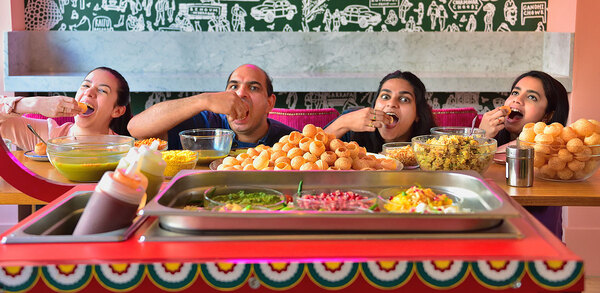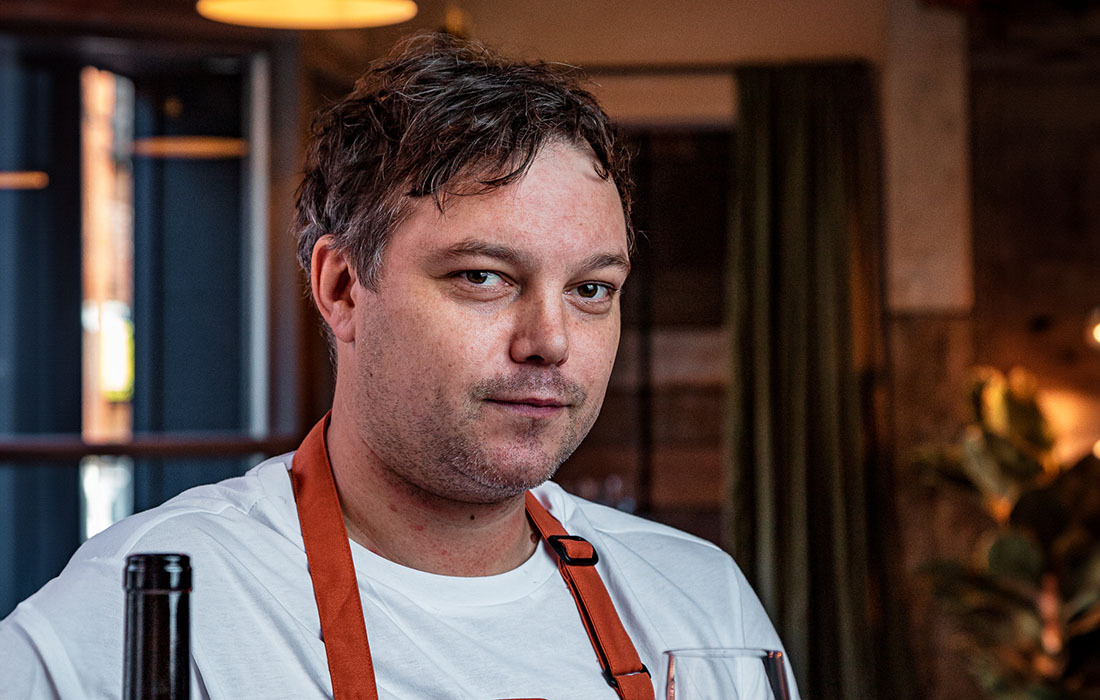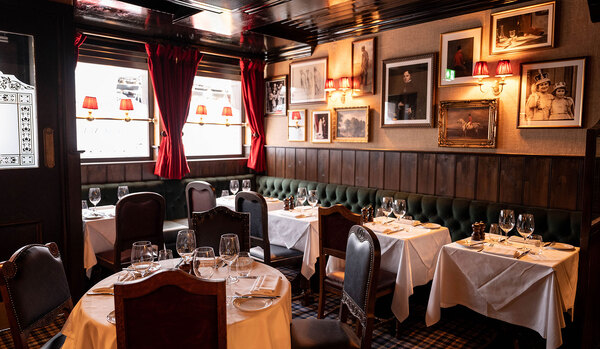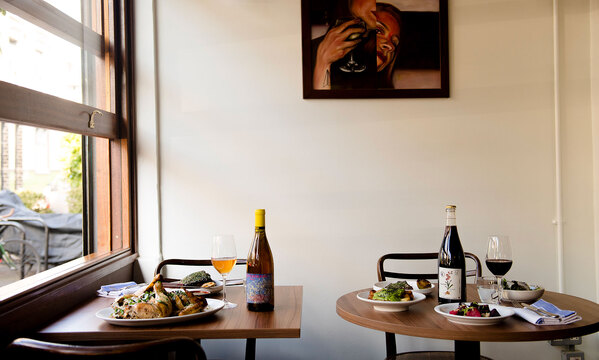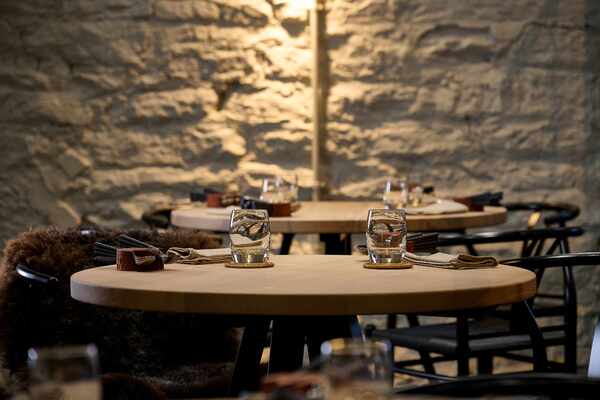Keep an open mind: hospitality professionals share their stories about mental health
What does it mean to have mental health problems and how can hospitality be a more supportive place for it? Here, seven professionals share their different stories and their coping strategies within a hospitality environment
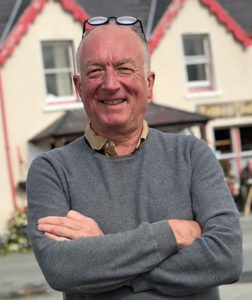
You work long, unsociable hours, and we still see low pay levels so much in our industry. It's such a physical challenge as well and therefore it's going to reflect on you mentally in the end.
Weâve come a long way, but I think weâve got a long way to go. Itâs still very much a dismissive situation â" someone gets stressed and thatâs it, theyâre a âstress personâ, but thereâs more to stress than that.
Iâve suffered with mental health problems quite badly for several years and had therapy at various times. I took an overdose a few months ago and had to spend 10 days in hospital. I suppose Iâm still recovering from that.
Having gone through it myself, Iâd like to try and help other people if I can. Iâm really keen to do an instructor training programme with Mental Health First Aid England, for which Iâm seeking sponsorship. I want to help other people in the industry by going into organisations and teaching them how to recognise mental health and anxiety within a workplace situation.
To me, mental health first aid should be treated the same as physical health first aid. Itâs a legal responsibility to have first aiders â" why shouldnât it be the same for mental health first aid?
I really enjoy cooking, and I think it helps me enormously with my issues. Cooking in itself can be a very important part of recovering from mental health problems.
Iâve had a very, very difficult few months and Iâve had to take a break, but Iâm very, very passionate about food and the food industry, and if thereâs anything that keeps me motivated, itâs that.
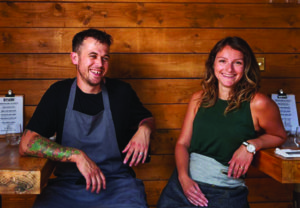
What started me off on a downward turn was when my wife had a miscarriage. Because it was just me and the chef-patron working in the kitchen â" I was at work the next day â" if I didnât go to work, they couldnât open.
I knew I should have been with her, but I couldnât let work down. Thatâs where my issues stemmed from. It was no oneâs fault other than mine; Iâve just never phoned in sick because I canât let people down.
Later we took on two less experienced people. One was a friend of mine, but the head chef left, so I took on the running of the kitchen. My second kid was born two days later, so I didnât have any time for paternity leave. She was born on the Sunday and I was back at work on the Tuesday. I didnât bond with my second kid for the first six months.
I confided in the guy I was working with, who was meant to be my mate. I told him I was struggling. He started telling me the chef-patron was slagging me off behind my back, saying I wasnât good enough. That went on for ages. It got to the point where I didnât want to go into work anymore. I just kept thinking,âwhat the fuck am I doing this for?â
I would be driving to work thinking âmaybe Iâll just crash my carâ. Not badly, but just so I canât go to work. I started to try and plan how I was going to get out, but I was in such a rut that on my days off Iâd just stay in bed all day.
I was really bad with my kids, with my wife; she tells me now that she contemplated leaving me because I wasnât there. I was just vacant.
It all came out later that my âfriendâ had been playing me and the chef-patron off against each other. He was basically angling for my job; thatâs the only reason I can imagine. Thatâs how I got as bad as I did, because I was being manipulated. That happens a lot â" people playing each other off in the industry.
It was a combination of personal issues and people not really understanding what youâre going through and using it against you for their own personal gain. Thatâs why I work on my own now. Iâve got massive trust issues, understandably.
Most people try and hide it, but you can tell if someoneâs struggling because they wonât be as productive. They might be quiet and miserable. Those things you can keep an eye on, and approach them if you think they might be struggling. Ask them and they might open up.
When I struggle I always phone my wife and talk, maybe not even about what Iâm feeling, just about stuff, talking shit. Thatâs how I get through when Iâm struggling. Donât hold back â" say everything youâre feeling, with at least
one person. Tell them exactly how you feel and be 100% honest with them.
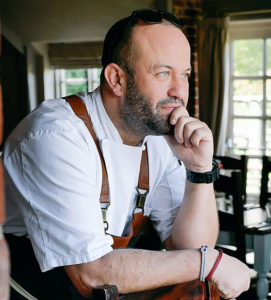
I didnât notice my mental health until 2012, which was when I guess I had my first serious incident. I moved back to Norfolk and was working in a restaurant where I was given two rosettes. At the same time, Iâd fulfilled a life dream of mine, to be a lifeboatman at Cromer for the RNLI. But as I started to make a name for myself, I put more and more on my own shoulders. Itâs the nature of the business weâre in, itâs what we put on ourselves â" as they say, youâre only as good as your plate of food.
I didnât say no to people and just took more and more on â" you donât want to let people down, so you keep doing it. You work harder, because the harder you work, the less you have to think. I felt like a performing seal.
You end up being a bit like a pressure-cooker and the whistle starts to blow, but it never stops. Thatâs when I first snapped.
A lot of people think if you take your own life itâs a weakness, but itâs not. When youâre sitting in a car park in the middle of the forest with a piece of rope thinking about who is going to find you in the morning, it is the most fearful place. I had run out of cigarettes, so I had to drive quite a distance to the nearest garage, and by that time it had occurred to me that my boy was three years old. How was his mum going to tell him that his daddy had decided not to be around?
Iâve got nothing in life I can complain about â" Iâm successful, Iâve got a great family, but I would come off stages and television sets and find a quiet place to have a cigarette and cry for an hour because Iâd think I was an utter failure.
Learning to say no has helped. I always explain why and I was amazed by the response from pals that I thought really wouldnât give two hoots. The most amazing thing Iâve found is the positive response you get by being honest with people â" donât hide it. If youâre struggling, go and see your doctor or, if you really are at your lowest ebb, the Samaritans are amazing.
A lot of people say employers should be doing more, but employees and employers should be doing more together. We need to listen to each other and, as employers, we have to ask our employees how they are more. If weâre going to inspire the next generation of chefs, we need to let our industry breathe, and thatâs not going to happen if we keep up this copious amount of pressure.
Charlie Hodson supports Hospitality Action and encourages people to talk about mental health on social media using the hashtags #TimeToTalk and #TimeToChange.
He has also teamed up with Redwell Brewing and the Gin Temple to host ‘Well Being, Nature and A Little Conversation', a monthly event to encourage people to talk about mental health. The relaxed social gathering will involve burger making and bulb planting lessons, former Norwich City midfielder Cedric Anselin will share his experiences with mental health, and h**ealth services and experts will be on hand to speak to anyone looking for help. The first event will take place at the Gin Temple in Norwich on 14 November. Activities start at 7pm.
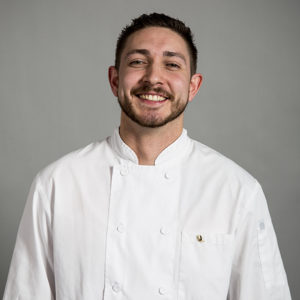
We had such a prolonged period in hospitality where there was a lot of bullying. It doesnât happen so much anymore, but I did work for a head chef who was a physical and mental bully.
This particular chef used to keep a perforated spoon tucked away in the middle of the range so it was constantly hot, and if you did something really shit during service, he would walk up behind you and put it on your arm to burn you.
This kind of behaviour spread among the staff too â" you could do a 19-hour shift, get yourself ready, and the following day someoneâs sabotaged a load of your prep.
It was my first move away from home as well, with no friends or family around. I donât know whether I was suffering from depression as such, but I found myself one morning reluctant to go to work. I started drinking at 9am and I took quite a heavy overdose and tried to kill myself. I was quite lucky because one of the chefs came banging on the door and found me.
I had another situation four years later in another place I worked, and a similar thing happened, but I wasnât aware of it. I suffer from something called disassociation. The easiest way to explain it is when youâve had a long day and youâre tired and you drive home. You do the same drive every single day, but there will be certain days when you canât remember the drive home â" itâs basically your brain putting you on autopilot mode. Everyone has it, but for me it can come at any time and I wonât remember it. I put up a wall in my head and put everything negative behind it, and eventually Iâll have a bit of an episode because I havenât dealt with any negativity or hurt. Suddenly, everything Iâve blocked out will attack me all at once.
Iâm having a form of cognitive behavioural therapy which teaches me all sorts of grounding techniques and trains you to focus, so if something bad happens I will be able to give myself a minute to take in my surroundings, re-focus and then approach the situation in the most effective way.
Hospitality is quite a difficult environment to take a minute in, even if you wanted to, and nine times out of 10 people are just tired. Daniel Clifford and Sat Bains have got it right, taking their restaurants down to four-day weeks, so you might still be working a 15- or 16-hour shift, but youâre getting those three days off and the time to have a life. I do appreciate theyâve worked very hard to get where they are and they can now afford to do that. Itâs the smaller businesses that are struggling with that approach.
My ideal hospitality business would offer a good, solid salary and a good, solid working environment, maybe 48-50 hours a week. The hardest thing is that, as a chef, you put 150% in and generally only get about 20% back.
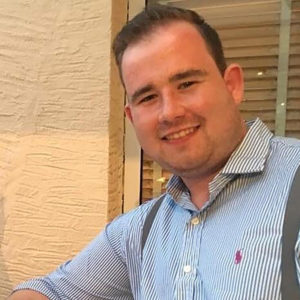
When I worked in London I was suffering really badly with mental health. Working in hospitality made it worse, but it wasnât the root cause. Lots of young people go into kitchens with problems, or they develop problems in the kitchen, and they donât know how to deal with it. They grow up learning not to talk about it.
In kitchens, itâs OK to have a burn or a broken arm, but you canât talk about how you feel mentally. If youâve got a difficulty that canât be seen, itâs not accepted as real.
I buried myself in work. I thought burying my head in the long hours, in drinking, would help me, but it burned me out quicker. People donât know help is available, which is the worst part. They donât know thereâs someone who wants to talk, to listen, to help. Thereâs Mind, there are mental health charities, your doctor â" there are other alternatives. But we just end up going round in a vicious circle.
In the end I helped myself. I found support and I saw a good therapist. I looked after myself and I talked about my problems and ignored anybody who said I shouldnât. I broke away from that culture and it changed my life.
Learning how to coach and be a mentor for people has always kept my skills fresh. I realised I was quite good at it, so I thought Iâd develop my skills further. I took a counselling course and worked with a master life coach. Iâve done quite a lot of personal development courses now, so I can actually help people solve issues with their mental health these days, rather than just talking about it.
I only work five days a week and my mental health has improved greatly for it. Itâs about looking after yourself. We have health and safety in the kitchen, we have non-slip shoes, we have chef whites and fire blankets â" but we have nothing to support our minds. There are no posters on the wall saying if youâre considering suicide thereâs support, hereâs a number, hereâs somewhere to go.
Itâs going to take time, but if we start installing this attitude in our younger chefs now, then the future generation will feel that itâs OK to talk about mental health.
www.jamielumsdenlifecoach.com
Mitchell Collier, guest relations manage at Belmond Le Manoir aux QuatâSaisons There is a real problem with mental health in hospitality â" itâs so competitive, youâre expected to crack on no matter what and smile through it. I always remember one of my old bosses telling me to leave my problems at the door. Thatâs easier said than done.
I was diagnosed with a form of skin cancer in June 2017 and had surgery in late June. My partner left me while I was going through the treatment and that was devastating. I had just got out of hospital on my 21st birthday and it was not what I had planned at all. Then in May I applied for a promotion but wasnât successful.
You get to a point when you suppress it so much but it niggles away more and more every day. I almost didnât want to burden my colleagues with it â" I saw them having a hard shift and I didnât want to make things more difficult by saying, âIâm really struggling at the moment and I donât feel myselfâ. We see admitting that youâre not doing well as a sign of weakness â" that youâre not able to do your job.
I stopped asking âhow are you?â, because I didnât want them to ask me how I was; I knew that Iâd have to lie and pretend I was fine.
Eventually, I told a colleague that I couldnât do it any more, and she pointed me in the direction of Hospitality Action. They gave me a total of 12 sessions of counselling, which helped me cope â" having someone to talk to, to open up about my experience without any fear of judgment.
You have all these training sessions on a variety of different things, but I donât ever remember having a training session about mental health, spotting the tell-tale signs.
It was only through my own experiences that I can spot that in someone else.
Weâre with each other all the time in our industry; you should be able to pick up on your colleaguesâ level of performance and interaction, changes in behaviour, someone who rarely makes mistakes messing up. Rather than picking up on the mistake, pull that person aside and ask whatâs going on, and if someone says theyâre struggling, donât turn around to them and say get over it â" encourage them to get support.
In November 2017 I was promoted to guest relations manager and I fully redid my 21st birthday this year. I previously viewed my mental health as a sack of bricks I was trying to pull behind me, but I donât see that any more. Now, itâs more of a rucksack that Iâm wearing â" Iâm carrying it, but itâs not a burden.
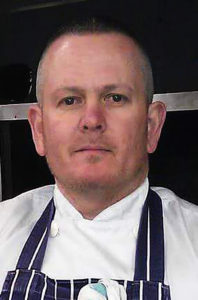
I became very aggressive. I was very distant from my loved ones and I had no tolerance with people. It was just the everyday things that most people just shrug off, like road rage. And in the kitchen I was finding it very difficult to overcome my anxieties and issues.
It destroyed my marriage, it estranged me from my eldest daughter and there are some scars that are quite apparent â" you can see that I used to self-abuse. It was a way of dealing with the anguish. The problem is employers donât know how to deal with a member of staff that is showing these signs â" when chefs are being abusive, people just think thatâs what being a chef is. Itâs not. These people really suffer with problems.
The reason that I started to get support was because the police got involved. I got arrested and I was taken to an adult mental secure unit. A counsellor got involved and after talking to me they knew exactly what I needed.
I was introduced to a resource called Combat Stress, a mental health society that looks after veterans. I still talk to a psychologist, but it has taken since 2011 to get to where I am now and by then Iâd already done quite a lot of damage, family-wise, friends-wise and job-wise.
I work for a big corporation now thatâs pretty understanding of my issues. I was quite upfront when I came in and they were still happy to take me on. Iâm not shy to say Iâve been broken and I needed someone to help me get fixed, but people need to know the resources are there. There arenât enough ambassadors out there from our industry to encourage people to say they need help. How many times do you hear a famous chef say âIâm an ambassador for a charity for mental health problems?â.
Itâs going to take somebody in the public eye to stand up and be open and honest and say they suffer with these issues. Meanwhile, companies need to look after their staff and give them the resources to spot the signs.
⢠If you feel like you may want to talk about your mental health, organisations such as Mind (www.mind.org.uk), Time To Change (www.time-to-change.org.uk) and Samaritans (www.samaritans.org) can offer help. Industry charity Hospitality Action offers a range of counselling and other support for hospitality professionals suffering stress-related symptoms via its Employee Assistance Programme. Details are available at www.hospitalityaction.org.uk.
TO READ THE CATERERâS FULL MENTAL HEALTH IN HOSPITALITY REPORT, DOWNLOAD YOUR FREE COPY HERE
Or read the rest of our special issue on mental health in hospitality industry:
⢠Viewpoint: Reassess your attitude to mental health, by Mark Lewis, Hospitality Action
â¢Â Mental health in hospitality: the results of our survey on mental health at work
â¢Â The Caterer interview: Andrew Clarke, chef at St Leonards and Brunswick House, on his personal journey out of depression
â¢Â How to… support team wellbeing
â¢Â This much I know: Simon Boyle, chef and founder of Brigade Bistro, London
â¢Â Better business: innovative ways to support your staff with their mental health at work




